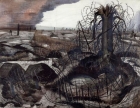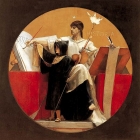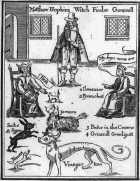Interpretations
The fact that both the National Curriculum in England and the national assessment objectives that frame public examinations at GCSE and A-level include a focus on ‘historical interpretations’ (plural) as well as referring separately to students’ own use of evidence – makes it very clear that there is an important distinction between the disciplinary concepts of ‘evidence’ and ‘interpretations’. While the former is concerned with students’ use of sources to develop their own interpretation of events; the latter is concerned with students’ exploration and explanation of how and why interpretations developed by historians differ from one another. (Both have a critical role to plan in students’ historical learning – and both need to be carefully planned!) Giving students the confidence and the knowledge to handle competing interpretations is undoubtedly challenging, but the materials in this section show how careful planning within and across the key stages (including Key Stage 3) can help students of all ages to engage effectively with interpretations examining the relationship between historians’ accounts (in books and on television) and the particular questions that they have chosen to answer, as well as the sources on which they claim to have drawn. Read more
-

Film: What's the wisdom on... Historical Interpretations
ArticleClick to view -

From flight paths to spiders’ webs: developing a progression model for Key Stage 3
ArticleClick to view -

From ‘double vision’ to panorama: exploring interpretations of Nazi popularity
ArticleClick to view -

Getting Year 7 to vocalise responses to the murder of Thomas Becket
ArticleClick to view -

Helping Year 8 to understand historians’ narrative decision-making
ArticleClick to view -

Helping Year 9 debate the purposes of genocide education
ArticleClick to view -

Helping Year 9 explore the cultural legacies of WW1
ArticleClick to view -

Historical learning using concept cartoons
ArticleClick to view -

Historical reasoning in the classroom
ArticleClick to view -

History and the perils of multiculturalism in 1990s Britain
ArticleClick to view -

How do you construct an historical claim?
ArticleClick to view -

Interpretations and history teaching
ArticleClick to view -

Interpretations of History: Issues for Teachers in the Development of Pupils' Understanding
ArticleClick to view -

Investigating students' prior understandings of the Holocaust
ArticleClick to view -

Key Concepts at Key Stage 3
Multipage ArticleClick to view -

Modelling the discipline
ArticleClick to view -

Move Me On 155: Historical Intepretation vs. Opinion
ArticleClick to view -

Myths and Monty Python: using the witch-hunts to introduce students to significance
ArticleClick to view -

Narrating “Histories of Spain”
ArticleClick to view -

New, Novice or Nervous? 156: Analysing interpretations
ArticleClick to view

